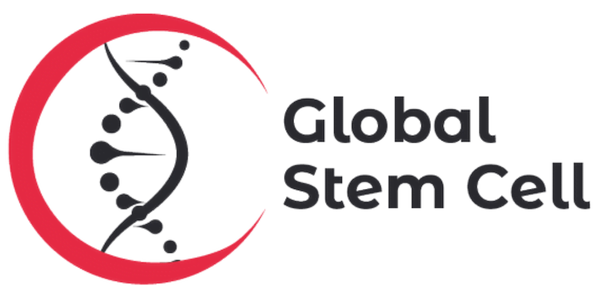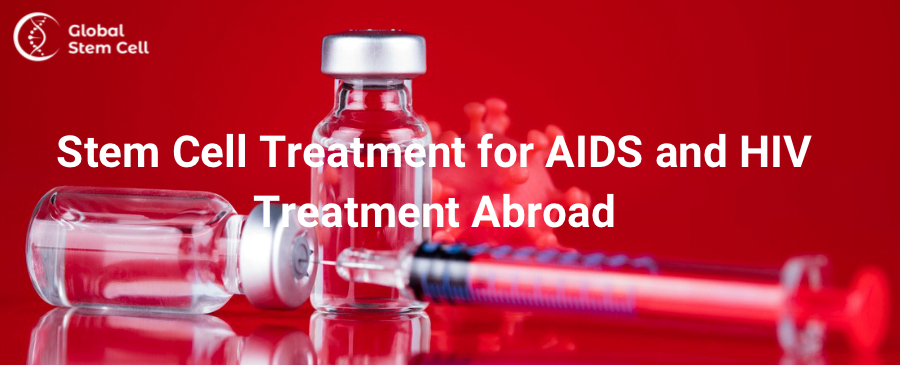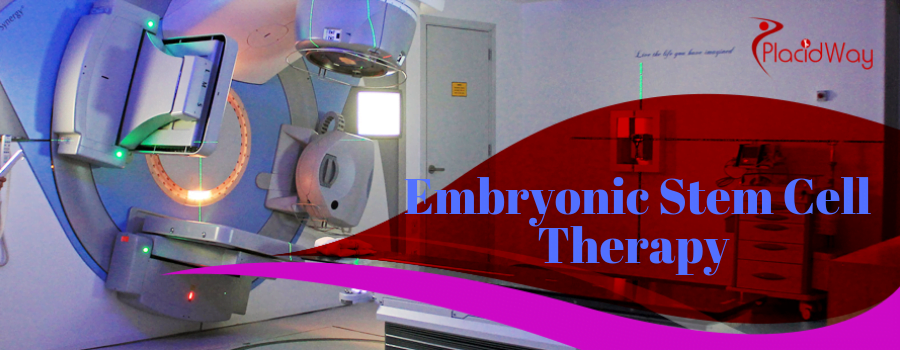Stem Cell Treatment for AIDS and HIV
Table of Content
AIDS (Acquired Immuno Deficiency Syndrome) and HIV (Human Immunodeficiency Virus) are known as deadly diseases in our society. AIDS is considered the final stage of HIV infection and it severely affects the immune system and its normal activities. For a long time, the scientists are searching for an effectual process of treatment of this disease.
A person suffering from HIV goes through several phases of the disease and the duration of the phase can run up to 8 years or more. It starts from acute infection and ends at the stage of clinical latency which leads the patient to more infections due to the increased virus levels in the body. According to the statement of AIDS Organization, the condition can be diagnosed when the CD4 cell count decreases and comes under 200 cells per cubic milliliters of blood. Recent discoveries have shown the benefits of cell transplantation treatment and stem cell therapy has become a popular non-surgical procedure to control various signs of HIV.
Stem Cell Therapy for HIV and AIDS
The severity of HIV can increase with the enhanced virus levels among the patients. Stem cell therapy aims to improve the immune system of the body, control the virus level and heals your body in an effective way. The success of advanced stem cell therapy has opened up a vast opportunity in the medical field and researchers are conducting experiments on the embryonic or fetal stem cell therapy to come up with another lifesaving therapy.
The stem cell treatment is comparably new and nowadays, many countries are offering their patent-protected technologies to the patients. There is an organization in Ukraine that conducts research on the benefits and effectiveness of stem cell therapy for HIV and AIDS. They have nearly two decades of experience and they are making a difference with a significant rate of success. The treatment is very effective to stop an individual from slipping into the most severe stages of HIV.
Stem cell therapy has become a preferred choice among a large group of people due to its success. Many people have experienced a positive outcome from stem cell treatment and hence the popularity is increasing with time.
According to the statement of the University of California, San Francisco AIDS Research Institute, more than 8000 people are dying of AIDS on a regular basis. Therefore they are looking for new methods which can improve expectancy and the quality of lives.
Level of Stem Cell Therapy for HIV/AIDS
Stem cell therapy for HIV/AIDS is currently at a very early investigational level. This means it’s still in the early stages of research and development. While some initial studies have shown promise, there’s a long way to go before it becomes a standard treatment option.
Here’s a breakdown of what “early investigational level” entails:
- Early-Phase Clinical Trials: Researchers are currently conducting small-scale clinical trials to assess the safety and feasibility of stem cell therapy in people with HIV/AIDS. These trials typically involve a small number of participants and primarily focus on determining if the treatment is safe and what potential side effects might exist.
- Not a Widespread Treatment: Due to the early stage of research, stem cell therapy is not yet considered a standard treatment option for HIV/AIDS. More extensive research and larger clinical trials are needed before it becomes widely available.
Advantages of Stem Cell Therapy for HIV/AIDS (Potential)
While still under investigation, stem cell therapy offers several potential advantages in the fight against HIV/AIDS:
- Viral Reservoir Eradication: HIV can establish hidden reservoirs within immune system cells, allowing the virus to persist despite standard treatment. Stem cell therapy could potentially target and eliminate these infected cells,leading to a functional cure for HIV/AIDS.
- Enhanced Immune Response: Stem cell therapy might be used to create immune cells that are resistant to HIV infection. This could offer long-term protection against the virus, potentially reducing the need for lifelong medication.
- Immune System Restoration: HIV can damage the immune system, making individuals more susceptible to infections. Stem cell therapy might offer a way to regenerate and restore a healthy immune system, potentially reducing the risk of opportunistic infections commonly associated with HIV/AIDS.
How Stem Cells Can Help with HIV/AIDS (Theoretical)
Researchers are exploring several ways stem cells could be used to combat HIV/AIDS. Here are some of the theoretical approaches:
- Bone Marrow Transplants with CCR5-delta32 Mutation: This approach involves using stem cells from a donor with a specific genetic mutation (CCR5-delta32) that makes them resistant to HIV infection. While this approach has shown success in a few rare cases, it’s complex, carries significant risks, and is not widely applicable.
- Gene Editing: Scientists are exploring techniques to edit the genes of stem cells to make them resistant to HIV infection. This is a very promising area of research, but it’s still in the early stages.
- Umbilical Cord Blood Stem Cells: Research is investigating the use of stem cells derived from umbilical cord blood as a potential alternative to bone marrow transplants. Cord blood stem cells might offer a less invasive way to acquire stem cells for therapy.
Potential Benefits of Stem Cell Therapy for HIV/AIDS
- Viral Reservoir Eradication: HIV hides in certain immune system cells, creating a “reservoir” that allows the virus to persist despite treatment. Stem cell therapy could potentially target and eliminate these infected cells,leading to a functional cure.
- Enhanced Immune Response: Stem cell therapy might be used to create immune cells that are resistant to HIV infection, potentially offering long-term protection.
Important Considerations before Stem Cell Therapy for HIV/AIDS
- Early Stage Research: Clinical trials are ongoing to explore the safety and effectiveness of stem cell therapy for HIV/AIDS, but it’s still in the early phases. There’s no guarantee it will be a successful treatment.
- Complex Procedures: Stem cell therapy for HIV/AIDS often involves complex procedures like bone marrow transplants, which carry inherent risks.
- Limited Availability: Even if successful, this approach might not be readily available to everyone due to its complexity and potential cost.
Alternatives for HIV/AIDS
- Highly Active Antiretroviral Therapy (HAART): This medication regimen remains the mainstay of HIV treatment. It suppresses the virus and allows people with HIV to live long and healthy lives.
What to Do if You’re Interested with Stem Cell Therapy for HIV/AIDS
- Consult with your doctor: Discuss the potential of stem cell therapy for HIV/AIDS in the context of your specific situation.
- Seek information from reputable sources: Look for information from organizations like the National Institutes of Health
- Be cautious of unsubstantiated claims: Beware of clinics promising miracle cures or guaranteed results.
- Consider participating in clinical trials: Clinical trials can offer access to cutting-edge treatments while contributing to scientific research on HIV/AIDS.
Frequently Asked Questions: Stem Cell Therapy for HIV/AIDS
Stem cell therapy for HIV/AIDS is a promising but developing field. Here are some frequently asked questions to help you understand its current status:
1. Can stem cell therapy cure HIV/AIDS?
Currently, there is no cure for HIV/AIDS. However, stem cell therapy holds potential for a “functional cure,” meaning it could eliminate the hidden viral reservoirs and allow the immune system to control the virus without medication. This is still under investigation.
2. What are the advantages of stem cell therapy for HIV/AIDS?
Potential advantages include:
- Targeting the viral reservoir: Stem cells might eliminate infected immune cells, preventing the virus from hiding and re-emerging.
- Enhancing immune response: Engineered stem cells could create HIV-resistant immune cells, offering long-term protection.
- Restoring the immune system: Stem cells might help rebuild a healthy immune system, reducing the risk of opportunistic infections.
3. What are the disadvantages of stem cell therapy for HIV/AIDS?
- Early stage of development: More research is needed to confirm safety and effectiveness before widespread use.
- Complexity and risks: Stem cell procedures, especially bone marrow transplants, can be complex and carry inherent risks.
- Accessibility: Even if successful, affordability and accessibility might be limited due to the complexity of the treatment.
4. What are the current stages of research for stem cell therapy in HIV/AIDS?
Researchers are conducting early-phase clinical trials to assess safety and feasibility. These trials involve a small number of participants and primarily focus on potential side effects.
5. Is stem cell therapy a replacement for current HIV/AIDS treatment?
No. Highly active antiretroviral therapy (HAART) remains the mainstay of HIV treatment. Stem cell therapy is currently not a standard option and is still under investigation.
How to Choose the Best Clinic?
Stem cell therapy is new compared to the traditional treatments. If you are planning to go with the stem cell treatment, you should get it from a reputed clinic. Check the packages and reputation of the clinic. As there is no standard price and the cost of the packages can differ. Check the reviews and ratings to get an idea about their services.
If you want more information on the same, click the button below:







